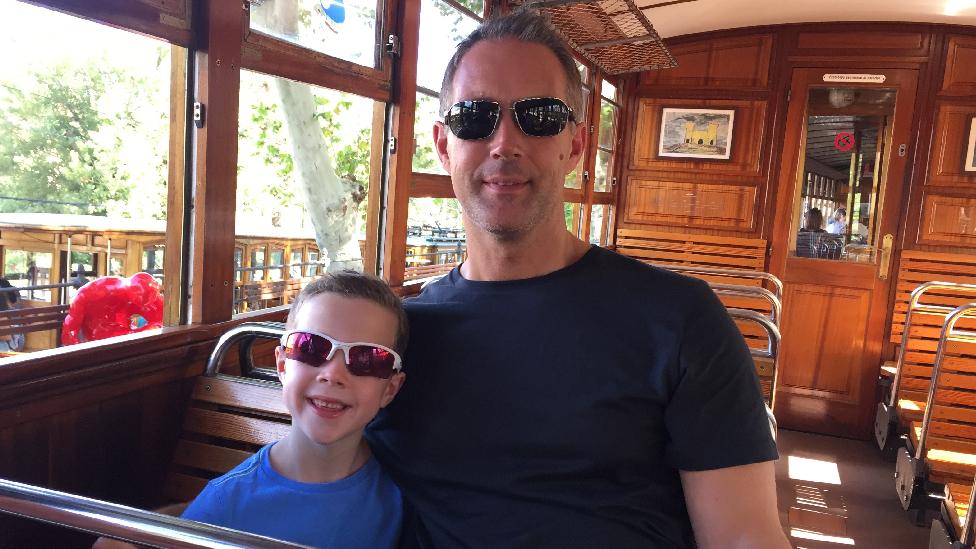Cardiac arrest: Defibrillator thefts 'risking lives'
- Published
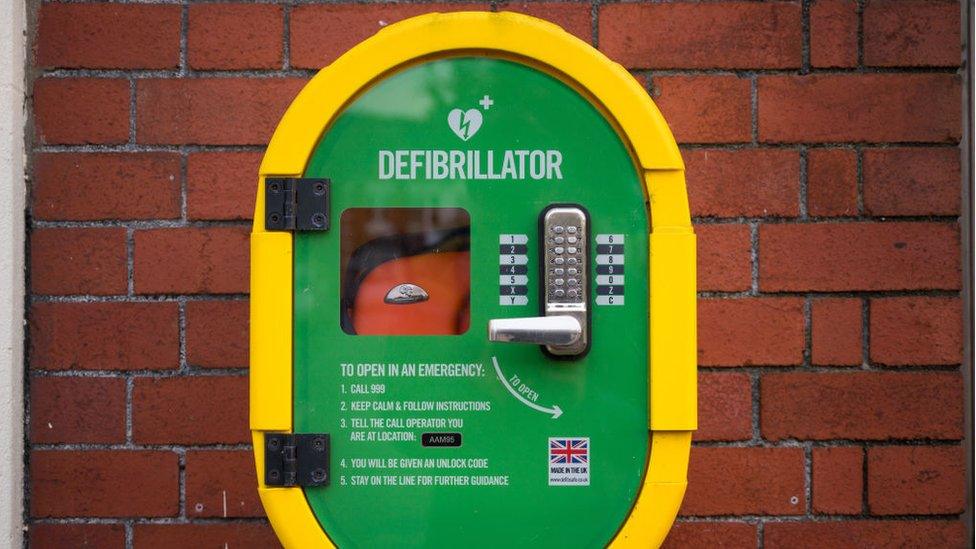
A defibrillator is used to give a high energy electric shock to the heart of someone who is in cardiac arrest
Lives are being put at risk by people who steal and vandalise defibrillators, the Welsh Ambulance Trust has said.
It said at least eight had been stolen or damaged in the past 12 months.
Cardiac arrest survivor Alan Mathias said it was "just incredible" people would target the life-saving equipment.
Fewer than 5% of people survive a cardiac arrest outside hospital but that rises to 70% if a defibrillator is used within three minutes, according to St John Ambulance Cymru.
A defibrillator, external is a life saving device that can give someone's heart an electric shock when it has stopped beating normally in a sudden cardiac arrest.
The charity said trying to prevent theft or damage by locking them in cabinets led to delays in an emergency situation and survival rates fall by 10% for every minute no action is taken.
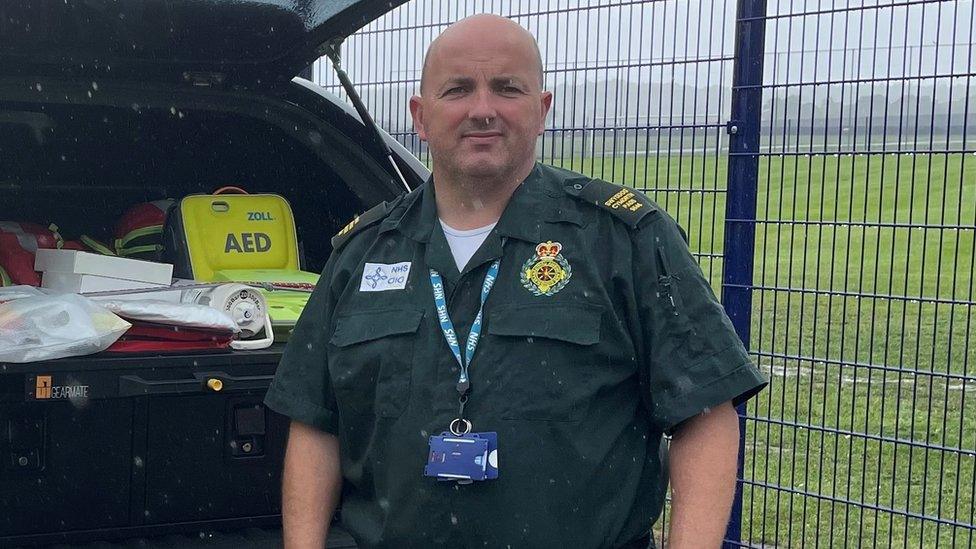
Tomos Hughes says vandals should consider how they would feel if their relative was unable to be saved
Public Access Defibrillators (PADS) support officer for Welsh Ambulance Trust, Tomos Hughes, said: "It make me feel very, very angry and very sad.
"Vandalism is basically putting lives at risk.
"I don't think they understand the consequences. If something was to happen to a member of their family, how would they feel when if they call 999 and were sent to retrieve a defibrillator and there wasn't one available because it had been vandalised in their community?"
He said last year there were incidents where members of the public had not been able to use defibrillators during a cardiac arrest because they were "offline due to vandalism or had been stolen".
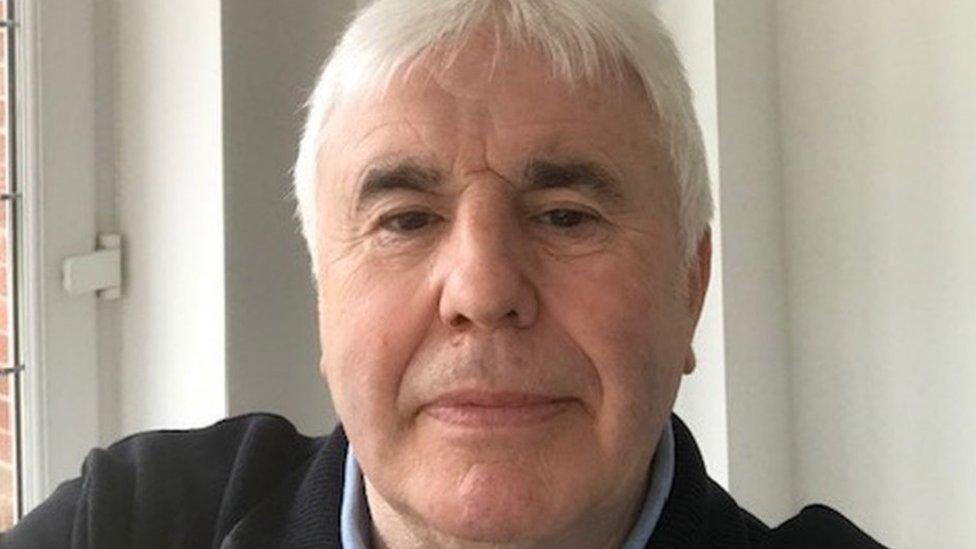
Alan Mathias suffered a cardiac arrest during a game of badminton
Three years ago Alan Mathias, 69, went into cardiac arrest while playing badminton at a leisure centre in Mold, Flintshire.
"I had no warning, nothing at all. The last thing I remember is seeing the floor coming towards my face," he said.
A doctor who had been playing on the next court began CPR while staff at the centre fetched the defibrillator.
"I probably wouldn't be here if it wasn't for the defib," he said.
"To think that people may steal them or vandalise them is just incredible."
He said he knew of one being vandalised in Mold.
"They caught the culprit and he realised his mistake when someone who had been saved by a defib told him their story."
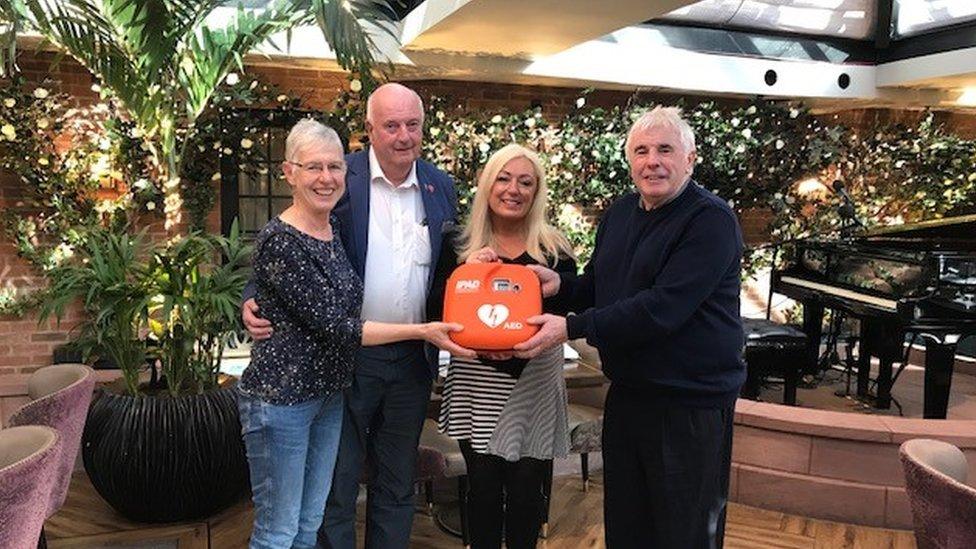
Alan Mathias has been working to get more defibrillators into communities with Calon Hearts since his cardiac arrest
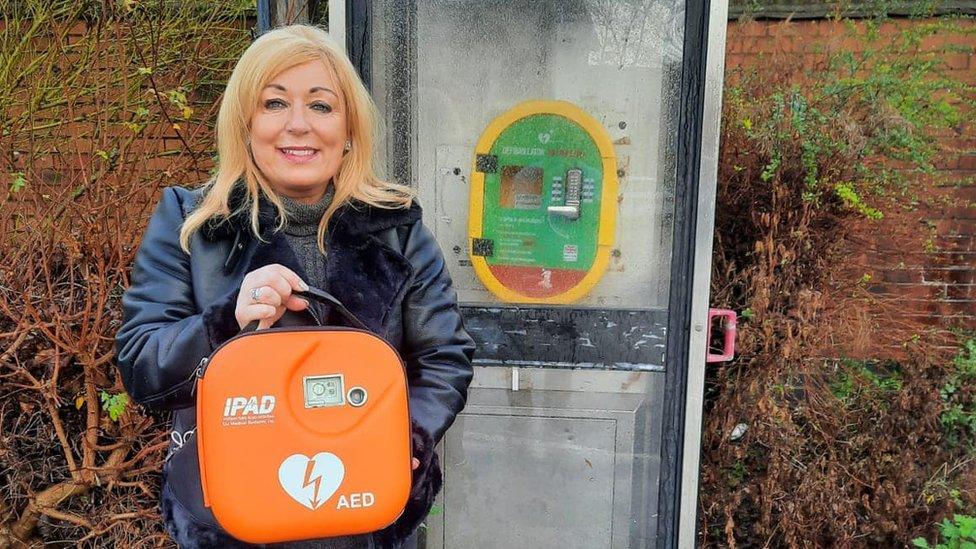
Charity Calon Hearts places defibrillators in communities, businesses, and schools and provides CPR training and heart screening
Sharon Owen founded Cardiff-based charity Calon Hearts nine years ago and it has since placed about 13,000 public access defibrillators throughout Wales.
"Because in the society we live in sadly, defibrillators are getting stolen or vandalised. If people only realised how important defibrillators are, it could be needed by their grandma, grandpa, mum or dad.
"It's sad to see that and I've seen a lot of instances where that's been happening."
She said a defibrillator had been taken from outside a church in Vale of Glamorgan and thrown in a river and one had been stolen from Bridgend train station.
"People have been fundraising for these machines, they're not cheap."
She said the charity advised people to put defibrillators in unlocked cabinets but people were choosing to put codes on them because they feared theft or vandalism.
"If the internet isn't good or they can't ring 999 to get the code, that person is going to die."
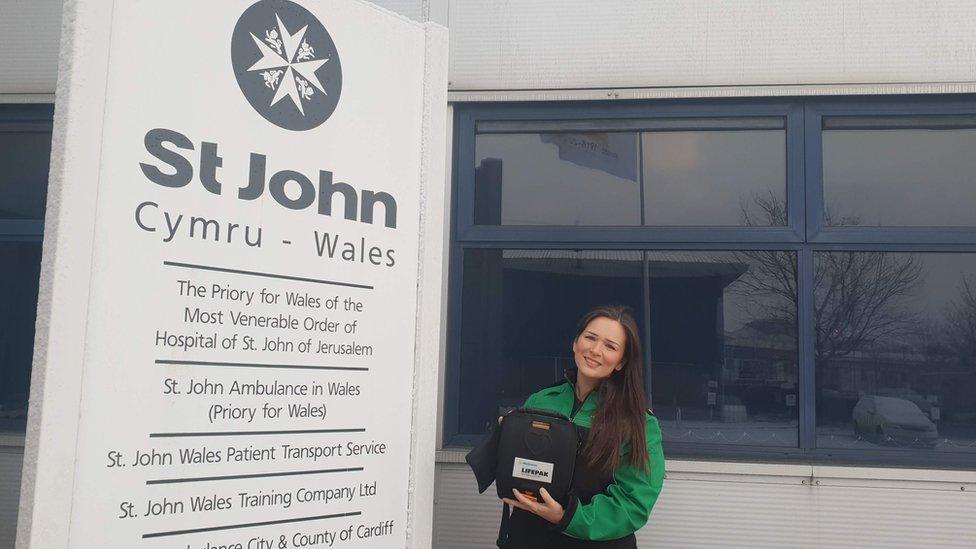
St John Ambulance Cymru says more public knowledge about defibrillators could help to reduce thefts and vandalism
Kimberley Low, a training manager at St John Ambulance Cymru, also advised against keeping defibrillators in locked cases.
"This can cause a delay in an emergency situation where every second counts. Survival rates fall by 10% for every minute that goes by without action being taken," she said.
She said the charity was aware of cases where machines had been stolen, adding: "Given their importance in saving lives [it] is disappointing, but thankfully they're relatively rare.
"Increasing public knowledge about the devices would lead to greater appreciation for their importance at the heart of local communities and ultimately a reduction in the instances of theft."
Adam Fletcher, head of British Heart Foundation Cymru, said it was important all defibrillators in Wales are registered with the national defibrillator network - The Circuit - which allows them to be located when someone calls 999 to report a cardiac arrest.
So far, only 6,000 have been registered and he said tens of thousands of defibrillators we estimate were unregistered across the UK.
He also urged defibrillator guardians to update the register if devices had been stolen or damaged.

FA CUP'S BIGGEST SHOCK: Remembering Wrexham's victory against Arsenal 20 years on
MY RADIO 1 ROADSHOW 70s 80s 90s: Memories of Wales' special relationship with the legendary Radio 1 Roadshow

Related topics
- Published23 August 2021
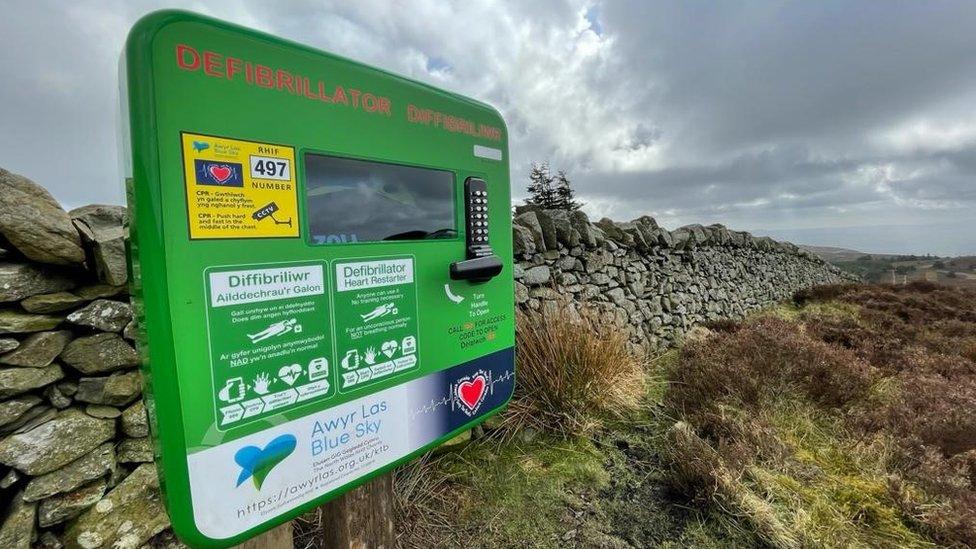
- Published22 October 2021
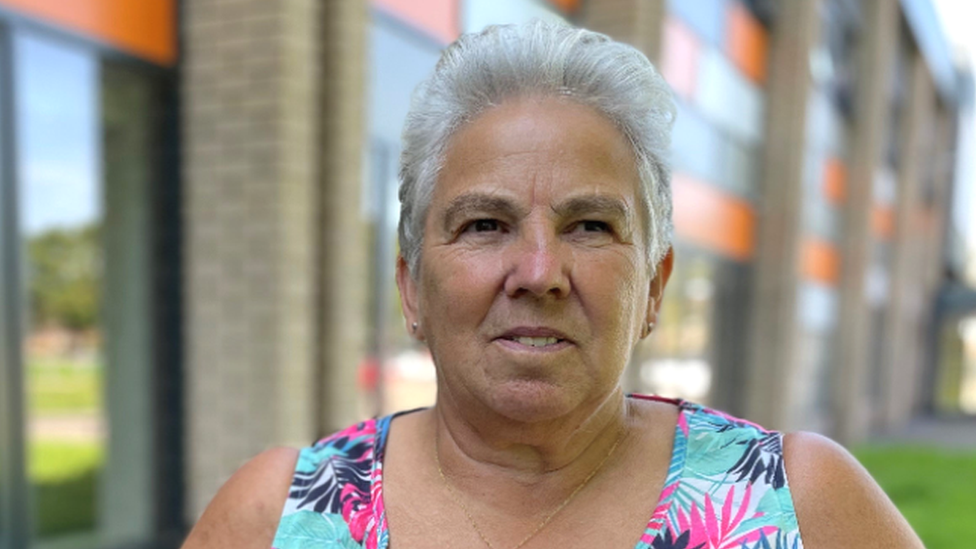
- Published20 May 2021
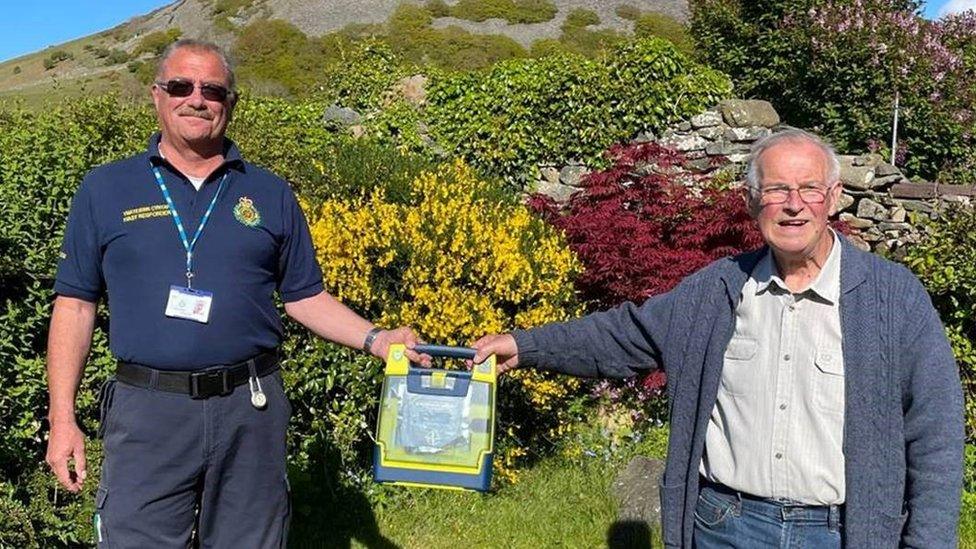
- Published1 October 2021
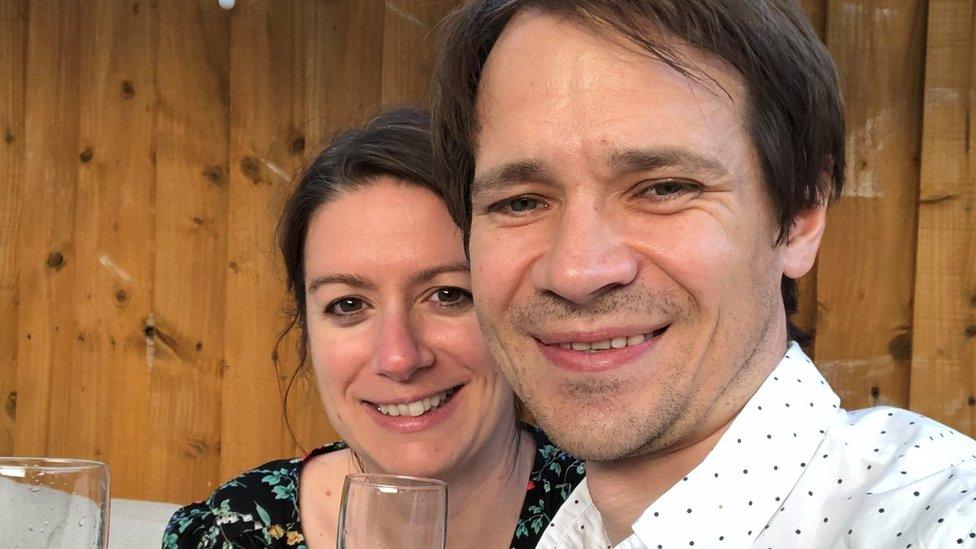
- Attribution
- Published8 September 2021

- Published14 June 2021
